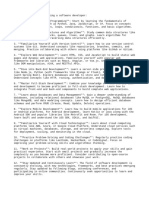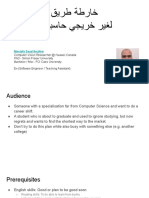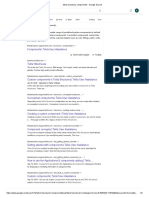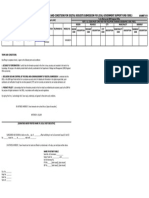Software Engineering Roadmap -
Pratham Kohli
1. Pick a Beginner-Friendly Language
● Recommendation: Python
● Why: Python has a simple syntax, making it easier to learn, especially for beginners. It’s
versatile and widely used in different fields, from web development to data science.
● Resources:
○ FreeCodeCamp's Python Course: Link
○ Codecademy's Python Course: Link
○ Book: "Automate the Boring Stuff with Python" by Al Sweigart
2. Start Solving Problems
● Importance: Problem-solving is key to mastering programming. By solving different
challenges, you'll build the logic required to write efficient code.
● Resources:
○ LeetCode: LeetCode - Offers challenges for all levels, from easy to hard.
○ HackerRank: HackerRank - Great for challenges in various languages and
topics.
○ Codewars: Codewars - Allows you to solve problems in a gamified way, offering
ranked challenges.
○ Book: "Cracking the Coding Interview" by Gayle Laakmann McDowell
3. Practical Learning Through Projects
● Importance: Applying your knowledge in projects helps solidify what you've learned. It
also makes learning fun and gives you something to showcase to potential employers.
● Suggested Projects:
○ To-Do List App (Beginner)
○ Weather App (Intermediate)
� ○ Portfolio Website (Intermediate)
● Resources:
○ FreeCodeCamp's Projects Section: Link
○ Frontend Mentor: Link - Offers real-world frontend challenges with designs.
4. Make a GitHub Account
● Importance: Learning Git and using GitHub is a must for collaboration and maintaining
a portfolio of your projects. Employers also review GitHub profiles as part of the hiring
process.
● Resources:
○ Official Git Tutorial: Link
○ GitHub Docs for Beginners: Link
○ Interactive Git Tutorial: Link
○ Command Cheatsheet: Start with basic commands like git clone, git commit, git
push, etc.
5. Data Structures and Algorithms
● Importance: Mastering Data Structures and Algorithms (DSA) is essential to
understanding how to approach complex problems efficiently, and it's highly valued in
technical interviews.
● Resources:
○ GeeksforGeeks DSA Course: Link
○ Neetcode YouTube Playlist: Link
○ Book: "Introduction to Algorithms" by Cormen, Leiserson, Rivest, and Stein
6. Join Coding Communities
● Importance: Being part of a community can speed up your learning process. You’ll get
support, stay motivated, and get access to valuable resources.
● Communities:
○ Telegram: Join coding-focused Telegram groups such as 100daysofcode for
peer learning.
○ Reddit: Participate in subreddits like r/learnprogramming or
r/cscareerquestions.
� ○ GitHub Discussions: Engage in discussions on projects and issues.
○ Discord: Join servers like CodeSupport or DevCommunity for real-time coding
discussions.
7. Find Your Niche
● Importance: After mastering the fundamentals, you should explore different areas of
software development and specialize in what interests you most.
● Suggestions:
○ Web Development: HTML, CSS, JavaScript, React, and Node.js
○ Mobile App Development: React Native, Flutter, Swift
○ Data Science: Python, R, TensorFlow, pandas
● Resources:
○ Web Development: The Odin Project
○ Mobile Development: Udemy's React Native Course
○ Data Science: Coursera’s Data Science Specialization
8. Build Your Portfolio
● Importance: A solid portfolio is essential for showcasing your skills to employers. It
should include your best projects, links to GitHub repositories, blogs, and even
contributions to open-source projects.
● Resources:
○ GitHub Pages: Create a free personal website using GitHub Pages.
○ Portfolio Templates: Check out platforms like BootstrapMade or HTML5 UP
for free templates.
○ Blogging: Start writing tech articles on Medium, Dev.to, or Hashnode to
demonstrate your expertise.






















































































